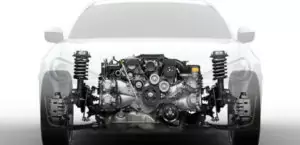The 1.0-liter Hyundai G3LE engine has been produced by the Korean concern only since 2020 and is installed on such popular models as i10, i20, Bayon, as well as Kia Rio, Ceed and Stonic. This unit belongs to the Smartstream line and is often combined with the iMT manual transmission.
Kappa R3 family: G3LA, G3LB, G3LC, G3LD, G3LE, G3LF.
Specifications
| Production years | since 2020 |
| Displacement, cc | 998 |
| Fuel system | direct injection |
| Power output, hp | 100 |
| Torque output, Nm | 172 |
| Cylinder block | aluminum R3 |
| Block head | aluminum 12v |
| Cylinder bore, mm | 71 |
| Piston stroke, mm | 84 |
| Compression ratio | 10.5 |
| Features | ISG |
| Hydraulic lifters | yes |
| Timing drive | chain |
| Phase regulator | Dual CVVT |
| Turbocharging | yes |
| Recommended engine oil | 0W-20 |
| Engine oil capacity, liter | 3.6 |
| Fuel type | petrol |
| Euro standards | EURO 6 |
| Fuel consumption, L/100 km (for Kia Stonic 2021) — city — highway — combined |
5.9 4.2 5.0 |
| Engine lifespan, km | ~220 000 |
| Weight, kg | 84 |
The engine was installed on:
- Hyundai i10 3 (AC3) since 2020;
- Hyundai i20 3 (BC3) since 2020;
- Hyundai Bayon 1 (BC3) since 2021;
- Kia Ceed 3 (CD) since 2021;
- Kia Picanto 3 (JA) since 2020;
- Kia Rio 4 (YB) since 2020;
- Kia Stonic 1 (YB) since 2020.
Disadvantages of the Hyundai G3LE engine
- So far, most complaints are related to the Start-Stop system or electrical glitches.
- Like all direct injection units, it suffers from carbon deposits on the intake valves.
- The timing chain does not have a large resource and often stretches to 100,000 km.
- It is also important to monitor the cooling system, this motor is very afraid of overheating.






